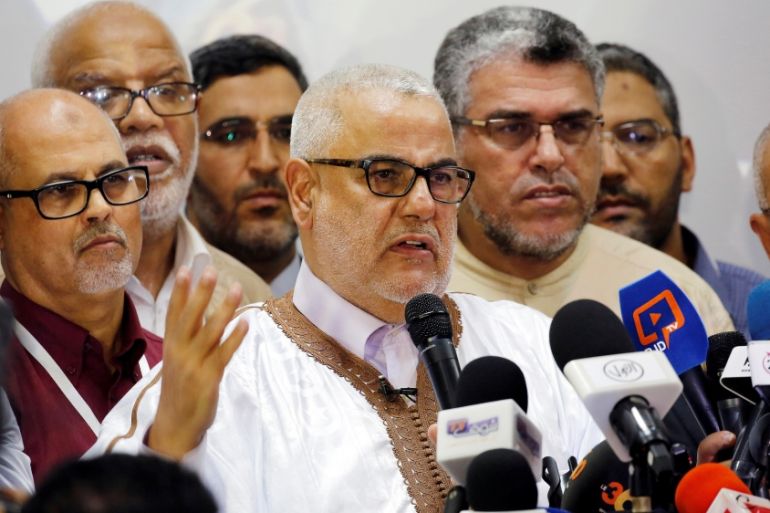Morocco’s Islamic PJD party wins parliamentary polls
PJD wins most seats in 395-seat House, while rival PAM comes second, results released by the interior ministry show.

Rabat, Morocco – Morocco’s Islamic Justice and Development Party (PJD) has emerged as the winner after the country voted for its 10th parliament since independence in 1956, according to official results.
PJD, which has been running a coalition government since 2011, won 125 seats, while the opposition Authenticity and Modernity Party (PAM) came second, with 102 seats, the interior ministry said on Saturday after all ballots were counted.
Keep reading
list of 4 items‘Absolute power’: After pro-China Maldives leader’s big win, what’s next?
Solomon Islands pro-China PM Manasseh Sogavare fails to secure majority
Pro-China party on course for landslide victory in Maldives election
READ MORE: Everything you need to know about Morocco’s election
The Istiqlal (Independence) Party – the oldest in the country, founded in 1944 – came third by winning 46 seats, following by National Rally of Independents (RNI) with 37 seats, and Popular Movement (MP) with 27.
‘Day of joy’
The results represented a strong message of support for the ruling PJD, despite opposition criticism that the Islamic party had failed to achieve tangible results in its five years of power.
“This is a day of joy and a victory for democracy,” Abdelilah Benkirane, PJD secretary-general and outgoing prime minister, told his supporters after the announcement of the results.
“The Moroccan people have rewarded PJD for the work we did in our previous term,” he said.
|
|
PAM spokesman Khaled Adnoun said he was pleased with the outcome of the election and ruled out any kind of cooperation with PJD.
“We are happy with the results, though we were expecting to grab more seats. However, we did better this time than in 2011,” Adnoun said.
“As said before by PAM secretary-general, there will be no cooperation of whatever with PJD.”
According to the terms of the 2011 constitution, the prime minister is selected from the party that receives the most votes in the election.
With PJD winning most seats in the 395-member House of Representatives, King Mohammed VI is likely to invite them to lead a new coalition government for a second consecutive term, the first party in the modern history of the kingdom to do so.
READ MORE: Test time for Islamic PJD Party
PJD will now reach out to other parties to form a coalition government, because the multi-party system in the kingdom makes it impossible for any political party to win an absolute majority.
Voting went smoothly in general, with a surprisingly weak turnout of over 43 percent.
| Missing voters |
|
Voter turnout in Morocco is generally poor. On the whole, about 50 percent of eligible voters cast their ballots both in local (municipal and regional polls) and national elections (parliament). Voter turnout in the 2015 local elections was 53.67 percent, up from approximately 45 percent in the 2011 parliamentary vote. |
The low voter engagement is widely considered a message of disappointment to political parties, which remain unable to motivate the country’s citizens, and especially the youth.
Speaking to Al Jazeera, many citizens expressed their resentment on the poor performance of the previous governments and the country’s politicians, who remain unable to touch on their daily problems.
“We need employment, decent accommodation, a good health system and better education. Corruption in the country, which remains widespread in both the public and business spheres, has to end as well,” a senior bank officer, told Al Jazeera.
Voters talking to Al Jazeera generally agreed on their expectations from the elections.
Many expect from the next government to alleviate the situation of healthcare, education and find a new mechanism to generate employment, which remain major social challenges that previous governments failed to handle.
According to the World Bank, more than one-fifth of young people are out of work.